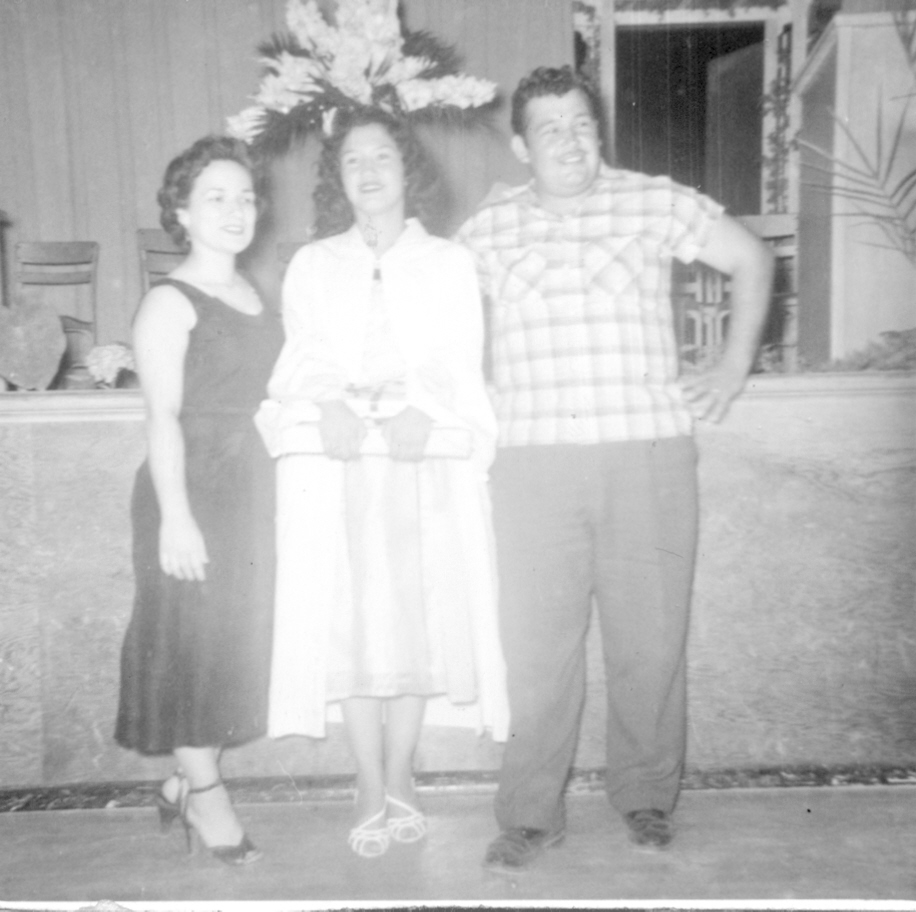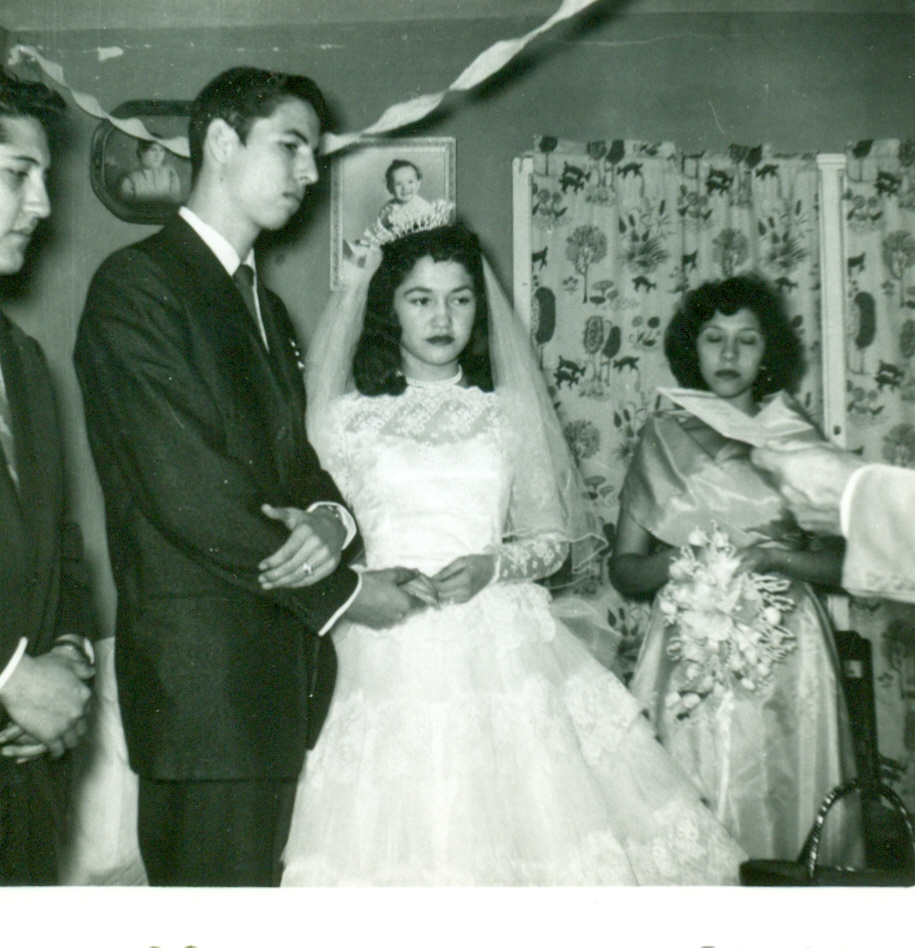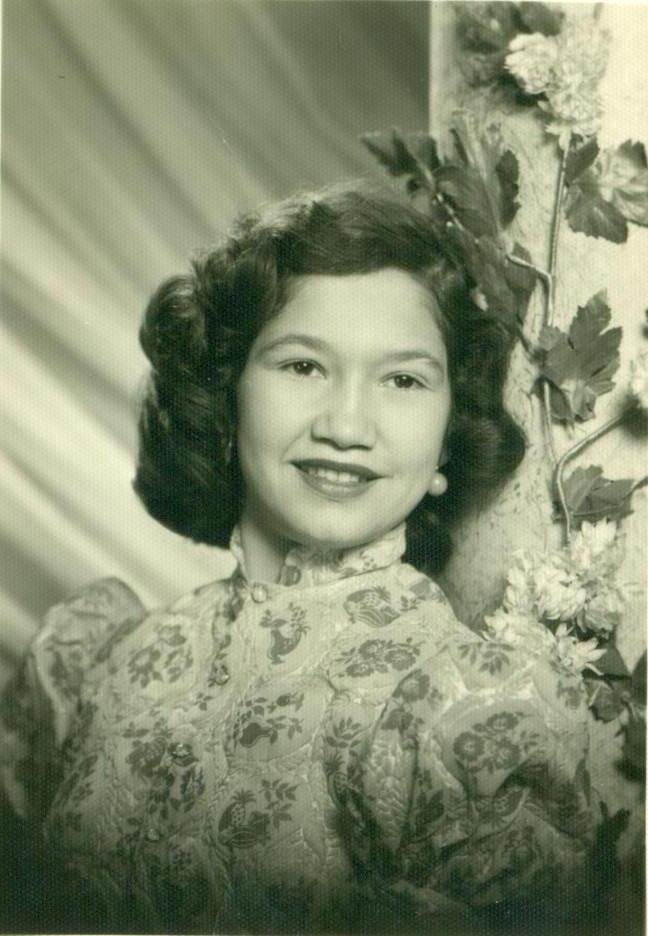TRANSCRIPTION
What are your earliest childhood memories?
When I was 4 years old, we were crowded in the front of a pickup truck. Suddenly another truck hit us from behind. My brother hit an object in the truck and punctured his eyeball. All the liquid came streaming from his eye. He was 5 years old. He never cried. He lost the eye.
I also remember the house we lived in when I was 3. It had dirt floors. We would always sprinkle water on it to keep the dust from rising.

What were the struggles in your life?
Struggles in my life: Not knowing English when I started school. Having to work in the fields after school and on weekends. Living in a 2-bedroom house with parents and 7 siblings.
Did you enjoy the farming life style?
No, I did not enjoy the farm lifestyle. I had to work in the field during extreme weather conditions-very hot and very cold. When we worked with certain vegetables-onions, for example, our hands would stink and I was very embarrassed. Even bleach would not get rid of the smell. I hated having to work on Sundays; we never had a day off.
How were you able to learn/ understand English?
I learned English when I went to school at the age of 6. The teacher did not know any Spanish. She held up cards for each word with a picture of the word. If we wanted to go to the bathroom (it was an out door toilets) we would raise one finger. Later, when we were smarter, we would raise our hand and ask, "may I please go to the "Bees ques" (translated means "may I please be excused")
Was it tough going to school and them working on a farm?
Yes, it was tough working in the farm and attending school because we had to work after school and then do our homework. It was very tiring.
Where would you give the crops to?
In the morning at 2:00 A.M., my father would take the crops to the crops to the farmer's market downtown. There the vendors from the stores would go buy the vegetables.

When you were sick where did you go to?
When we were young, we never went to doctors. If we cut ourselves and were bleeding, we would put spider webs to stop the bleeding. If we had stomachaches, headaches, or fever, mother would boil herbs for us to drink. When we were sick, we stayed home.
How was it like to work on a Farm?
Working on a farm was very hard. We had to get up before sunrise and work during all types of weather. We started working at the age of 5. There were no days off or holidays. The only time we didn't work was on rainy days or when we were sick.
What School did you attend?
I attended La Coste Elementary, Our Lady of Grace Catholic School, and Southwest High School.
Did you attend school every day?
Yes, I went to school every day. I loved school and did not want to be at home.

What did you do at Kelly AFB?
When I first started, I was a clerk Typist, then I went to night school to learn "shorthand" and I became a "stenographer." Slowly I "climbed the ladder." Later I became an "inventory Management Specialist" which involved calculating the number of parts to order for the aircraft engines (f-15 Fighter jets, C-5 and C-7 Cargo aircraft). I loved my Job!
What did you do for fun?
For fun, we would play baseball and football. We always played together. We also watched TV and went swimming in the canal. In high school, I was in the pep squad and went to all the football games.
Was church part of your life?
We went to church every Sunday. After church, we would work in the field.

Have you ever wanted to or wish you had a different lifestyle?
I always wished that I could live in the city and go on picnics like the other kids. I always wished that I wasn't poor and I wanted to attend college.
Where did you meet Tony Resendez?
I met Tony when I worked at Kelly Air Force Base.
What was your dream?
My dream was to become a teacher.

What was your accomplishment in life?
My accomplishment was having a good job for 30 years, raising five good children, and helping them with my grandchildren.
What was your favorite memory?
My favorite memory was that of everyone sitting on the porch eating homemade empanadas that my mother made.

Is there anything else you would like to add to this interview?
During the 30's and 40's, life was hard. Everyone around us was poor, not just us. We were all very close because we played together all the time, no expensive toys for us. We were always singing, even though none of us is a good singer. Our Parents expected us to work or read all the time; they couldn't stand lazy kids. The Catholic Church would make Mexican-Americans sit in the back. We could not be in the choir.

